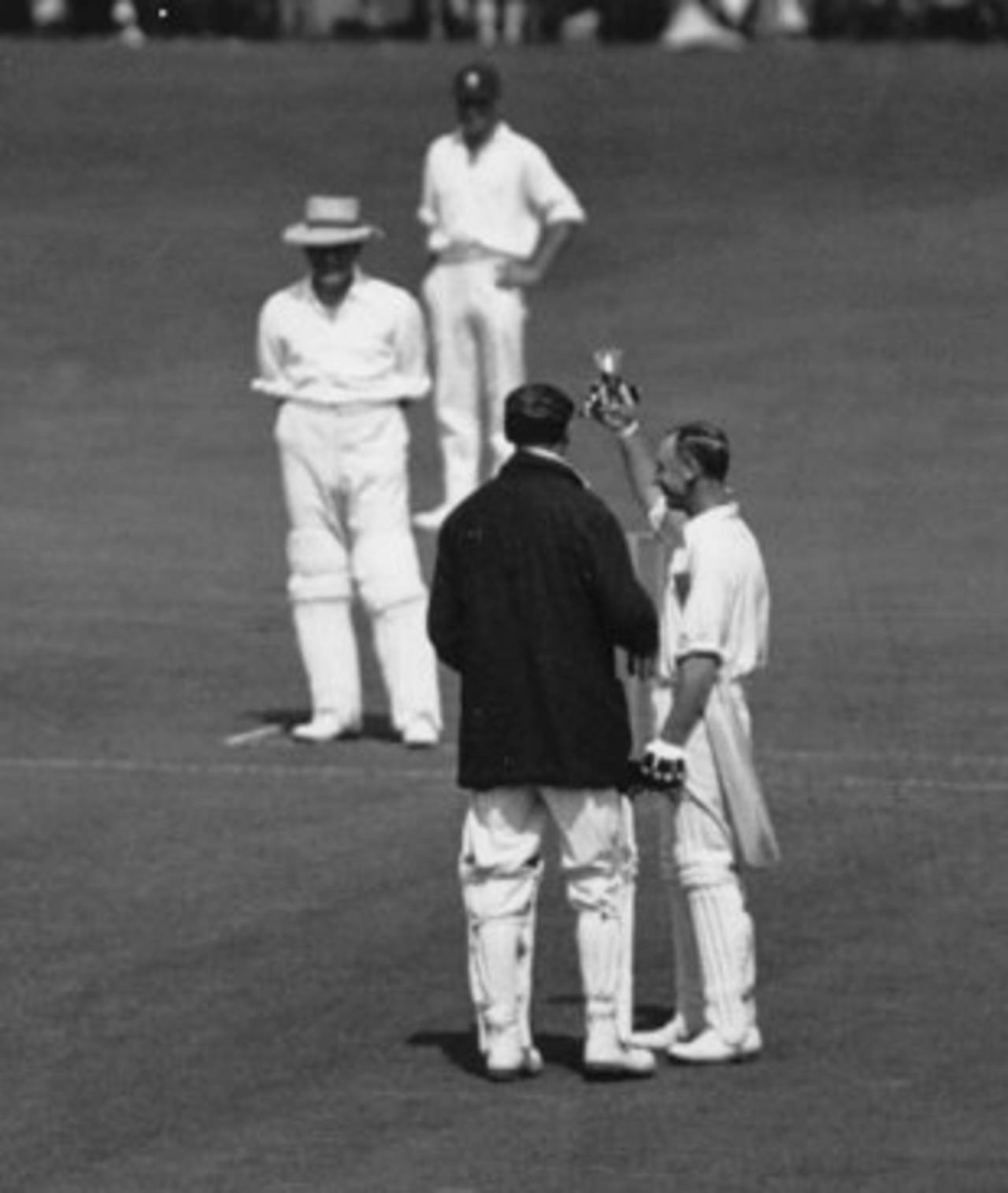As a cricket-obsessed youngster, one of my favourite pastimes was finding connections to past heroes in as few steps as possible. The phrase "six degrees of separation" hadn't been invented yet, but it gives you the idea. Thus I calculated that I was four steps away from the great Ranji, for example (you should have shaken hands with someone who shook hands with someone who shook hands, etc).
It went something like this: I had shaken hands with my hero Gundappa Viswanath, who knew Tiger Pataudi, who knew Duleepsinhji whose uncle Ranji was. Not bad. Perhaps one or even two steps might have been eliminated, but I never discovered if one of India's fast bowlers on the 1936 tour of England, the double international MJ Gopalan, had met Ranji. Gopalan, an icon in Chennai, I knew and had visited, but I somehow never got up the courage to ask him to be a part of my childish games.
In his introduction to a 1981 edition of
Jack Hobbs' autobiography
My Life Story, Benny Green performs a sophisticated version of this exercise, calling Hobbs "the keystone in the arch of modern cricket history", and goes on to say, "In his first first-class match, he played against WG Grace. In his last, he played alongside FR Brown, who captained Brian Close in a Test match, which means that the unbroken line of succession from 1848, the year of Grace's birth, to 1977, when Close retired, is a route into history."
Other people have written about Hobbs rather better than he has himself - Ronald Mason's is the standard biography, John Arlott's the charming one - yet My Life Story, despite its reticence, its reluctance to get into the technique of one of the game's greatest technicians or its avoidance of anything controversial, still manages to paint a picture of a sportsman and his times that both educates and entertains.
Hobbs, the maker of the
most centuries in first-class cricket (199), the
most runs (61,760), and briefly, when his skipper left the field with tonsillitis, England's first professional Test captain (albeit an "acting" one), was in the perfect position to write about cricket in his time. The following must come as a revelation to those harking back to a perfect age:
Part of the charm of the game lies in the evocative power of its literature. And in its ability to remind us across generations that the game has been there before
"Cricket," writes Hobbs "is not so bright nowadays. Bowlers today bowl more with the idea of keeping the batsman quiet… The Press is constantly singing out for brighter cricket, and the public is upset. Some of our writers are too ready to indulge in destructive criticism. Cricket in no way stands in need of 'brightening', by mixing it up with military bands, coconut shies and miscellaneous side shows."
That was written in the 1930s, when Don Bradman was at his peak, when Walter Hammond and a host of others were constructing cricket's new golden era. It might have been written yesterday, as a summing up of modern concerns. Part of the charm of the game lies in the evocative power of its literature. And in its ability to remind us across generations that the game has been there before.
It is humbling to read of cricket's most prolific run-maker that, before he went in to bat, he was "… apt to imagine the bowlers are better than they really are; I think of their deadliest balls and of myself being caught in the slips…"
Hobbs is by common consent the quintessential professional, in the pure sense of the word, and not in its modern sense as a money grabber or a condoner of sharp practice. Although he makes a passing mention of how Grace tricked him out of a single in his debut game, the spirit of the era is captured in the story of how a batsman stole a single from under Hobbs' nose at cover and then at the end of the over apologised, saying that "if he had remembered [Hobbs'] bad thigh, he would not have taken the second run."
There is also the story of the Master's 124th century (to equal Grace's record). He was unbeaten on
91 overnight, and there was a massive crowd waiting to get in to savour the historical moment. "The Somerset captain asked me if I would mind waiting until those outside had all been admitted." And so, writes Hobbs, "I had just the experience that was likely to make me more fidgety than ever - namely the experience of hanging about."
The past is indeed another country.
Suresh Menon is a writer based in Bangalore
